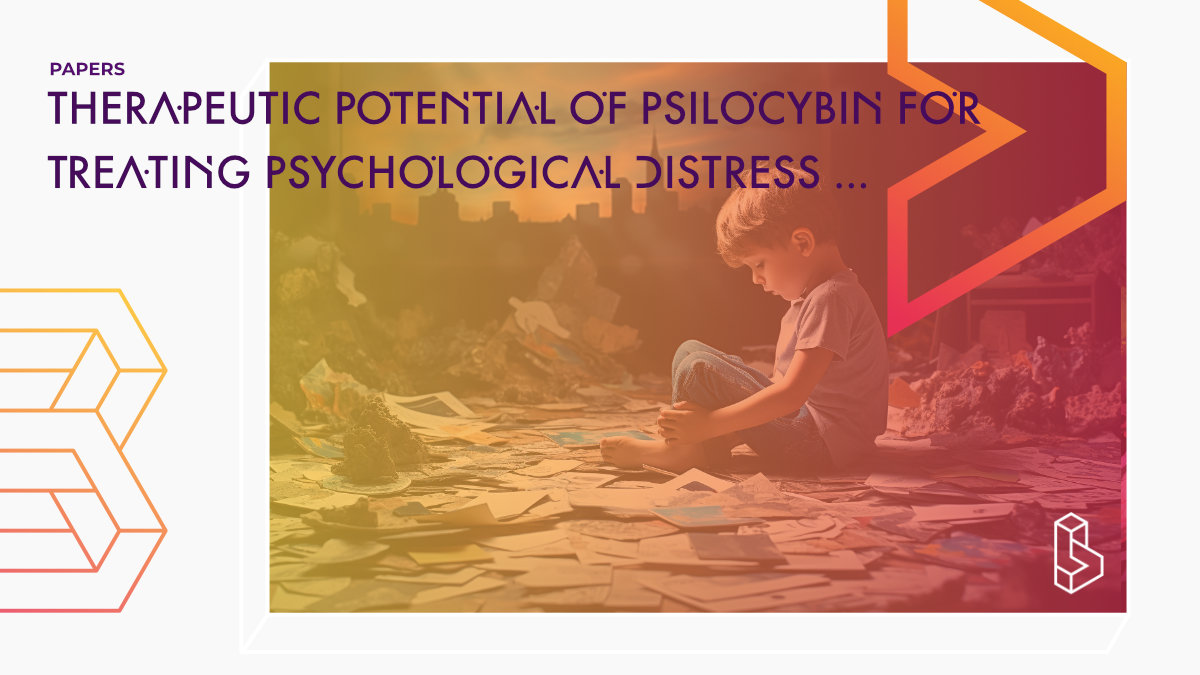This survey (n=1,249) assessed interest in and acceptability of psilocybin use among individuals who have experienced adverse childhood experiences. The study found high interest in psilocybin, and its use was associated with reduced psychological distress among those with more severe childhood adversity, indicating its potential therapeutic benefits for this group.
Abstract of Therapeutic Potential of Psilocybin for Treating Psychological Distress among Survivors of Adverse Childhood Experiences: Evidence on Acceptability and Potential Efficacy of Psilocybin Use
“Survivors of adverse childhood experience are at elevated risk for psychological distress. In recent years, renewed interest in psychedelic medicine has highlighted the therapeutic potential of psilocybin for those who have experienced childhood adversity. However, recreational psilocybin use remains illegal and access to approved therapies is difficult. Such use provides an opportunity to explore the therapeutic potential of psilocybin for psychological distress among people with adverse childhood experiences. Therefore, we conducted an online survey to assess interest in, acceptability of, and experiences with psilocybin. We further explored whether the association between Adverse Childhood Experiences Questionnaire (ACEQ) scores and psychological distress was lower among those who had used psilocybin in the past three months. Results showed high levels of interest in and acceptability of psilocybin that did not differ across ACEQ scores. Results also showed that the effect of adverse childhood experiences on psychological distress was lower for people who had recently used psilocybin (p = .019). Taken together, these findings suggest that psilocybin therapy may be potentially acceptable and may feasibly help in supporting survivors of adverse childhood experiences with particularly strong benefits to those with more severe childhood adversity.”
Authors: Kiffer G. Card, Ashmita Grewal, Kalysha Closson, Gina Martin, Laura Baracaldo, Sandra Allison, Daniel J. Kruger & Zach Walsh
Summary of Therapeutic Potential of Psilocybin for Treating Psychological Distress among Survivors of Adverse Childhood Experiences: Evidence on Acceptability and Potential Efficacy of Psilocybin Use
Introduction
Adverse childhood experiences, including abuse, neglect, and life course disruption, have cascading health and social consequences. These effects include disrupted capacity for self-control, diminished resilience responses, and reduced means of coping with adversity.
Multicomponent psychosocial interventions targeting early childhood have been shown to have modest impact in reducing the toll of adverse childhood experiences, including a heightened level of emotional distress and increased social vigilance, which in turn makes forming healthy relationships more difficult and reduces psychological resilience. Researchers continue to look for ways to improve health outcomes for survivors of adverse childhood experiences, including reducing barriers to accessing and adhering to treatment regimens.
Find this paper
https://doi.org/10.1080/02791072.2023.2268640
Paywall | Google Scholar | Backup | 🕊
Cite this paper (APA)
Card, K. G., Grewal, A., Closson, K., Martin, G., Baracaldo, L., Allison, S., ... & Walsh, Z. (2023). Therapeutic Potential of Psilocybin for Treating Psychological Distress among Survivors of Adverse Childhood Experiences: Evidence on Acceptability and Potential Efficacy of Psilocybin Use. Journal of Psychoactive Drugs, 1-11.
Study details
Compounds studied
Psilocybin
Topics studied
PTSD
Study characteristics
Survey
Participants
1249
Humans

